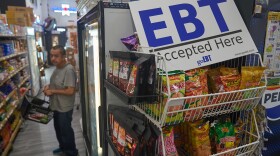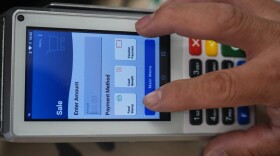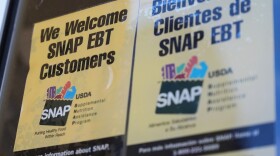-
The Alabama Department of Human Resources has begun mailing out new chip-enabled EBT cards to SNAP benefit recipients.The upgraded cards offer enhanced security to block unauthorized out-of-state and online purchases.However, Alabama cardholders who wish to make such purchases can still do so by downloading the ConnectEBT Mobile App, visiting the ConnectEBT website or calling the EBT Customer Service phone number.
-
A bill that would place new restrictions on what items Alabama SNAP benefit recipients are allowed to purchase, has passed a Senate committee. Senate Bill 61, was approved by the Senate Finance and Taxation Committee. It calls for removing food and drinks with high sugar and sodium content.
-
Work requirements are kicking in for more older adults and parents of teenagers across the U.S. who get help with groceries through the Supplemental Nutrition Assistance Program. The implementation dates vary by state. For Alabama lawmakers, the issue may be more of a political one.
-
State lawmakers are confronting the possibility of new major costs tied to SNAP benefits.This comes as new federal requirements under the One Big Beautiful Bill Act are shifting administrative costs to states.The move forces Alabama to cover roughly 39-million-dollars.Beginning next year, the state could also face up to 200-million-dollars in addition expenses tied to payment error rates.
-
With the longest U.S. government shutdown over, state officials said Thursday that they are working quickly to get full SNAP food benefits to millions of people who made do with little-to-no assistance for the past couple of weeks. Until recently, SNAP families and food banks in Alabama will have to subsist with pledges of emergency funding from Governor Kay Ivey and The State Department of Human Resources.
-
It wasn’t immediately clear how quickly the debit cards that beneficiaries use to buy groceries could be reloaded after twin rulings by federal judges. That process often takes one to two weeks. The website USAfacts says 750,000 Alabamians use SNAP dollars to afford enough to eat.
-
A federal judge in Boston on Thursday seemed skeptical of the Trump's administration's argument that SNAP benefits could be suspended for the first time in the food aid program's history because of the government shutdown. The website USA Facts says 750,000 Alabamians use SNAP benefits to buy groceries.
-
Officials in Louisiana, Vermont and Virginia pledged this week to keep food aid flowing to recipients in their states, even if the federal program is stalled next month because of the government shutdown. Alabama’s plans, if any, remain under wraps with the November first deadline looming for an end to federal money. The state is not responding to questions from the press about what happens this coming Saturday.
-
The Trump White House will order an end to federal measurement of food insecurity. That’s a situation where Americans either fail to have the resources to eat regularly, or live in so called “food deserts,” where access to groceries including fresh fruit and vegetables is limited.This is an on-going problem in Alabama.
-
For the almost two million Alabamians grocery store shelves loaded with fresh fruits and vegetables are often out of reach. That’s because they live in what are called food deserts. Those are rural and urban settings where poverty is higher, education is lower, and supermarkets are often non-existent. That leaves so called “dollar stores” as the only grocery option for a growing number of Alabamians facing food insecurity. Last week, we reported on what changes to food stamps might mean for Alabama’s hungriest residents. Today she teams up with a local chef to better understand the challenges of Alabamians living in food deserts.
Play Live Radio
Next Up:
0:00
0:00
Available On Air Stations










